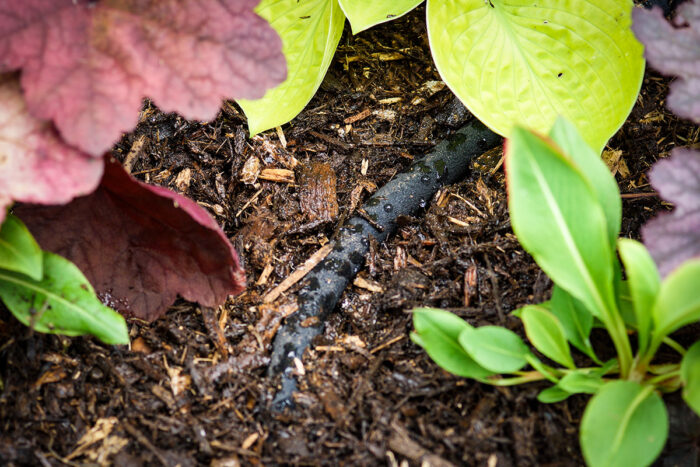
I had my first experience with an irrigation system when I moved to the Mountain West. That was over two decades ago, but who’s counting? I froze my backflow preventer that first year, being clueless as to the need to winterize the system. I have learned much about irrigation since then in my years living in southern Colorado.
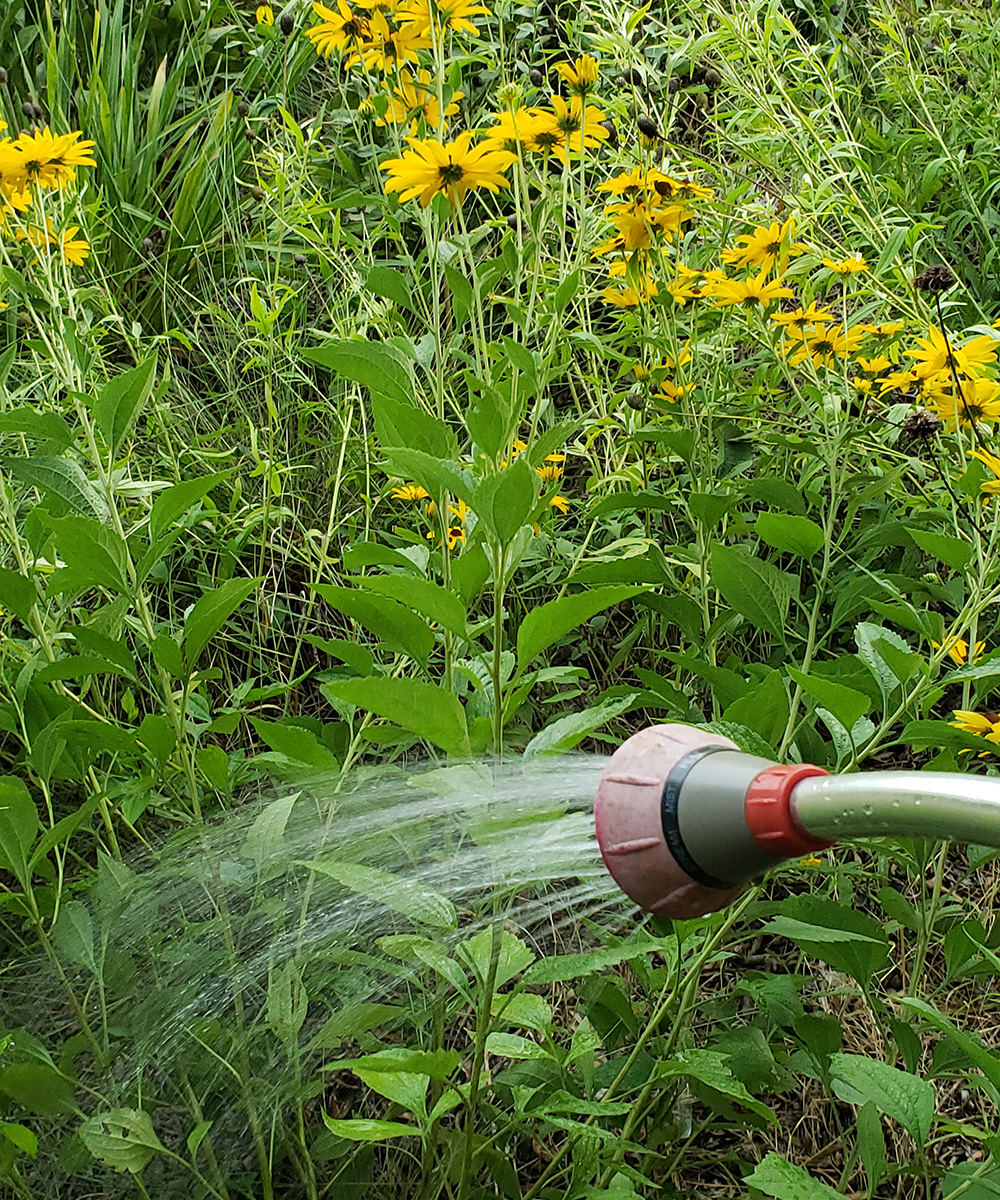
Sometimes a hose just doesn’t cut it
I have taken irrigation-design and irrigation-systems-management classes as part of a horticulture program. While I’ve learned a lot, I have to tell you that irrigation is not my favorite thing—far from it. But since I do not have time to selectively water areas of my garden on a regular basis, especially with a large vegetable garden and lawn areas in the mix, an irrigation system is a necessity for my Rocky Mountain yard.
An economical and proactive choice
Irrigation technologies have come a long way in recent years. While installing a system can be a significant investment up front, a good irrigation system can save you money in the long run. With continuous drought cycles and various water restrictions in place in our region, an irrigation system can help you navigate hard choices about which plants to save, or not, should the time arise.
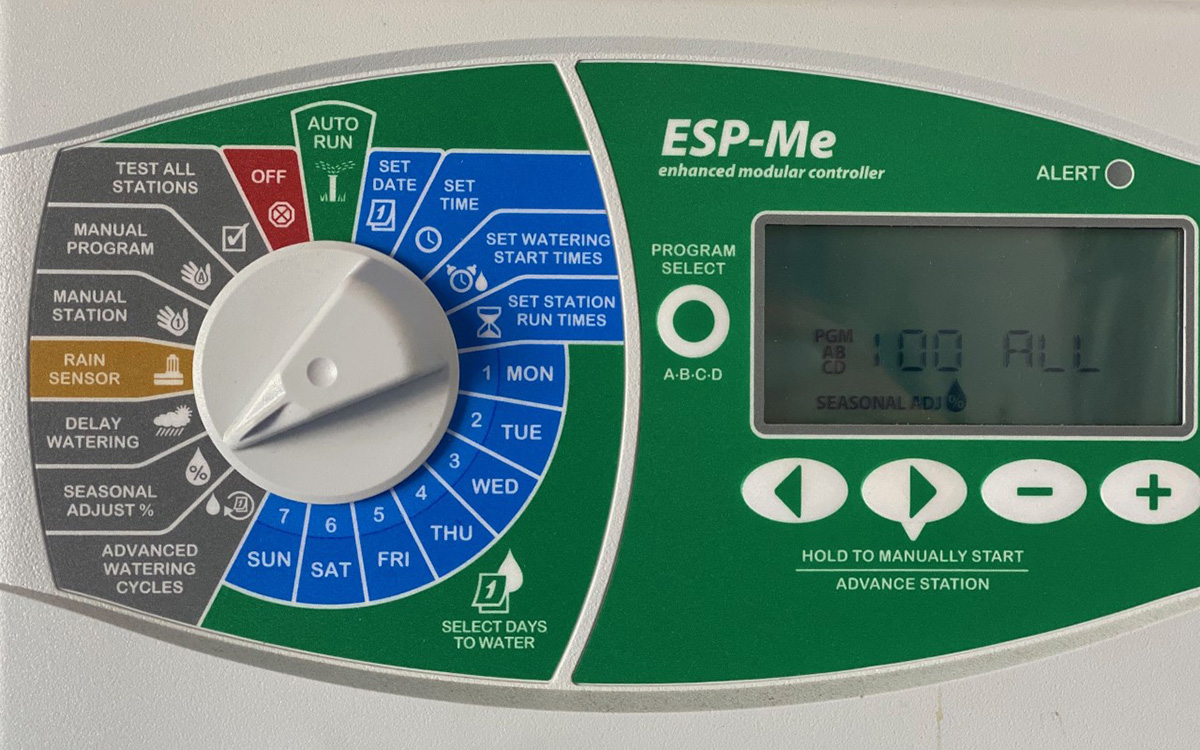
Invest in a good irrigation controller
Irrigation controllers are no longer simple timers that tell your system when to turn on and how long to run. They can come with so many features: multiple programs that run different zones on different days of the week with different start times; water budgeting features to increase or decrease the amount of water used, by percentage, at any given time; and rain gauges or soil moisture meters to measure the amount of moisture on your site and turn off the system when water is not needed. Some systems have “smart” capabilities allowing them to access local evapotranspiration rates and adjust your watering times accordingly, or the ability to connect all of your watering data to an app so you can keep track of it on your phone or computer. Needless to say, the more features, the pricier the controller, so think about what you really need and will actually use.
Drip. Spray. Rotors.
There are three main types of irrigation systems, and in most cases you will want more than one in your landscape; in fact, I have all three types in my yard. There are several considerations. You need to think about turf versus planting beds, the amount of space to be irrigated, wind, and the impact of water restrictions.
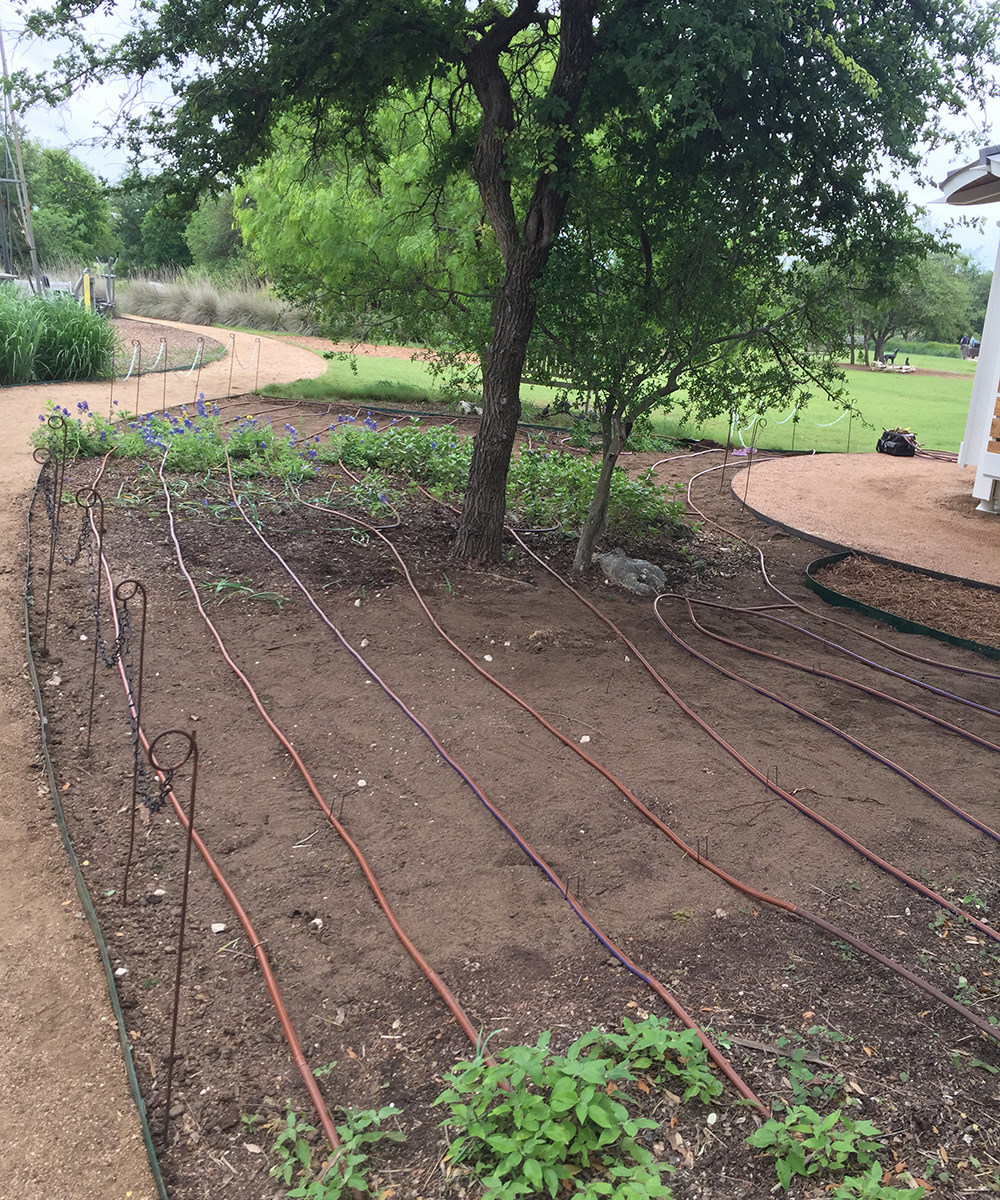
Drip systems
Pros: Drip systems are mostly used in planting beds, putting water at the root zones of plants. This also keeps you from watering areas that don’t need water, minimizing weeds in those areas. Another benefit to drip irrigation is that winds do not impact these systems, as they are typically under mulch. You can use systems with drip emitters, laser or soaker tubing, or small bubblers. Drip systems require a special pressure-reducing valve; without it, the pressure in spray zones will blow the emitters right off the lines. An important benefit of drip irrigation is that in many instances homeowners are allowed to keep their drip systems going when water restrictions are implemented.
Cons: While drip systems can be efficient, there are concerns. As systems age, emitters get clogged without your realizing it, and plants can unexpectedly die. Additionally, as plants grow, they may need more water to thrive. And when plants die out, you may have emitters watering nothing, effectively wasting water. Lastly, if you like to change your planting beds often, drip irrigation can be problematic for all the reasons listed above.
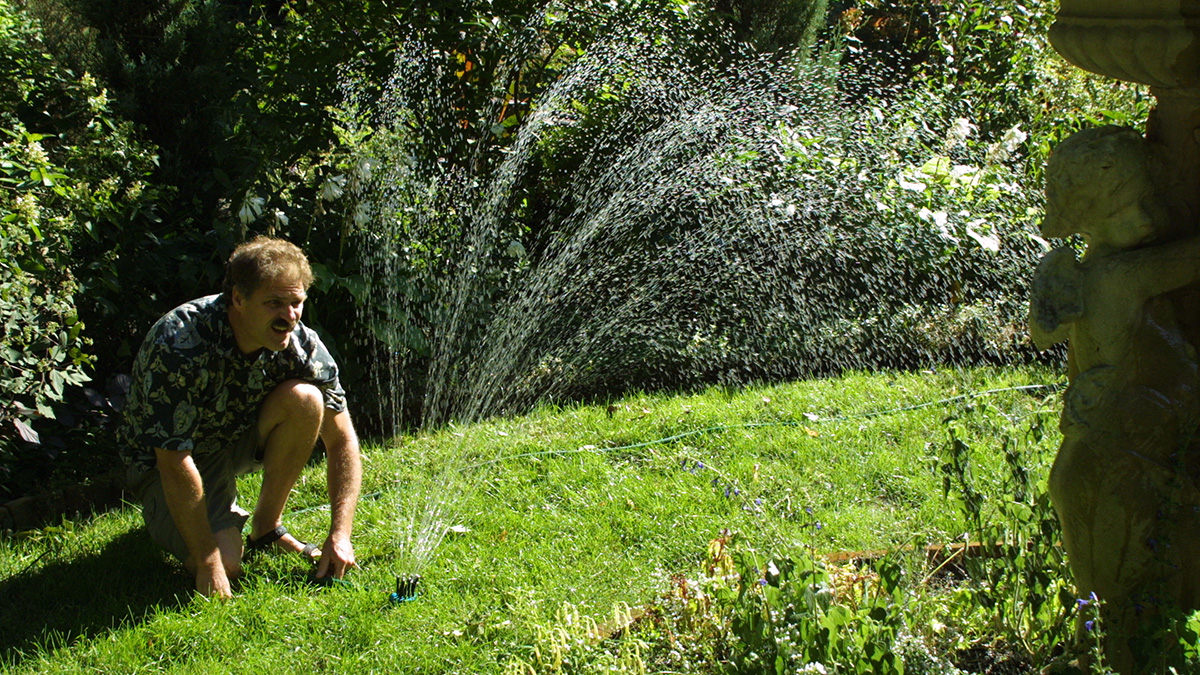
Spray systems
Pros: Spray irrigation systems are used to provide coverage for smaller turf areas and planting beds. You can easily assess a system’s accuracy by turning it on to detect leaks, dry spots, and other concerns. These systems put out a lot of water, so typically zones only need to be run for 10 to 15 minutes at a time.
Cons: Because they put out fine water droplets, spray systems are very susceptible to wind blowing the water to unwanted locations, and in our dry climate some of the water can evaporate before it even gets to the plants. To minimize evaporation, run these systems at night or early in the morning before the day begins heating up. Spray systems along with lawn irrigation in general are two of the first things to be banned in water restrictions, either by limiting the number of days you can water per week, or by mandating the systems to be turned off entirely.
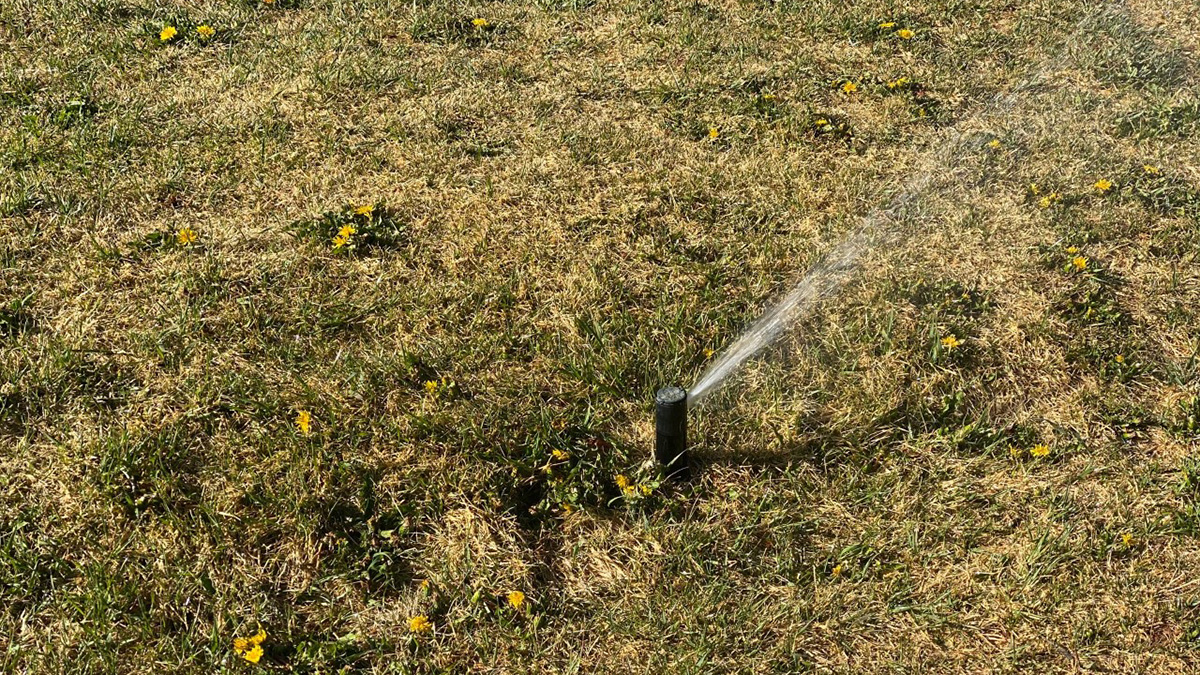
Rotor systems
Pros: These systems are a lot like spray systems, but they throw out larger droplets of water over longer distances, requiring fewer heads to cover a zone. Rotor systems are primarily used for larger lawn spaces. These systems are less susceptible to wind than spray systems.
Cons: That being said, we all know what hot, dry winds can be like in July and August in the Mountain West, so time your watering accordingly. Once again, these systems and lawn irrigation are the first things to be restricted in a drought situation, so be prepared for that to happen.
With drought so prevalent across the Mountain West even early in the season, it is a good idea to evaluate your irrigation system in spring or early summer before the heat of the summer is upon you.
—Michelle Provaznik is executive director of the Gardens on Spring Creek in Fort Collins, Colorado.
Fine Gardening Recommended Products
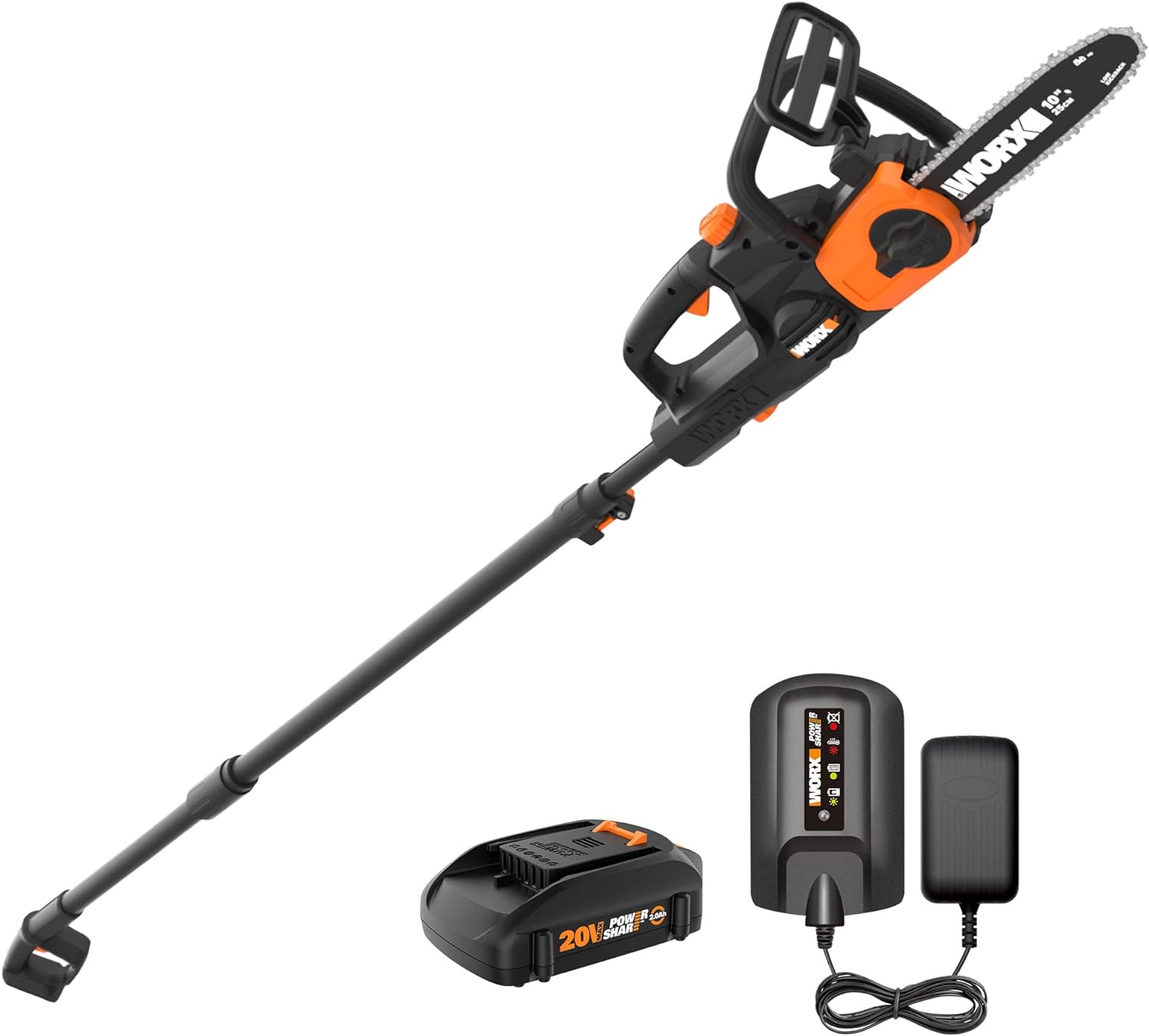
Fine Gardening receives a commission for items purchased through links on this site, including Amazon Associates and other affiliate advertising programs.

Lee Valley Garden Knife
Fine Gardening receives a commission for items purchased through links on this site, including Amazon Associates and other affiliate advertising programs.
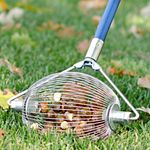
Medium Nut Wizard 14" for English Walnuts, Chestnuts, Golf Balls
Fine Gardening receives a commission for items purchased through links on this site, including Amazon Associates and other affiliate advertising programs.





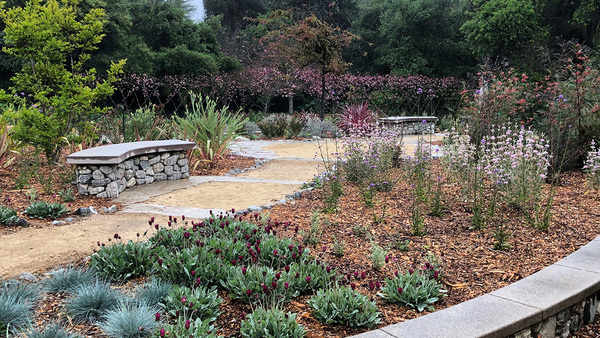












Comments
Log in or create an account to post a comment.
Sign up Log in